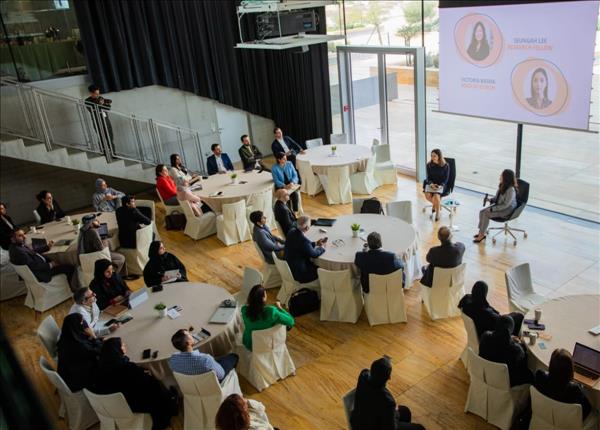(MENAFN- The Peninsula) The Peninsula
Doha: A policy dialogue on education technology (edtech) in Qatar and recommendations on how to establish Qatar as a leading edtech testbed brought together educators, policymakers, and Qatar Foundation (QF) education leaders at a recent roundtable hosted by the World Innovation Summit for Education (WISE) in partnership with Qatar Science and Technology Park (QSTP) and the Ministry of Education and Higher Education.
The discussions further solidified the working partnership between WISE, QF's global education initiative, and the Ministry of Education and Higher Education following the success of WISE's Doha Learning Days Festival last week, which was held with the Ministry's support.
The discussion centered around the main findings and recommendations of the new WISE report, 'Qatar's Edtech Testbed: Building Collaborative Partnerships for Innovative Teaching and Learning Outcomes'. It details the journey and key findings of Qatar's first full edtech testbed cycle in 2021-2022 – a pivotal milestone in WISE's efforts to accelerate innovation in the local learning ecosystem through edtech.
The testbed partnered with Kamkalima, an Arabic educational platform, which was implemented in participating QF schools. Kamkalima's content provided the schools with additional resources in Arabic language learning.
Elaborating on the outcomes of the publication, the report authors, Seungah S. Lee, research fellow at WISE and visiting senior lecturer at New York University Abu Dhabi, and Victoria Basma, Head of Edtech at WISE, presented the challenges, key findings, lessons learned, and recommendations of the testbed.
“The report captures invaluable observations and lessons learned from the testbed, which are a starting point for WISE to pursue our broader objectives. These include developing a sustainable community of edtech specialists and increasing practitioners' understanding of how edtech can be used to overcome persistent challenges in classroom teaching and learning,” Basma said.
Discussions featured Qatari policymakers, experts, and practitioners engaged in deeper reflection on the outcomes and exchanged their ideas. They considered what the biggest obstacles are that prevent the implementation of edtech in the school ecosystem; short-term policy actions to remove such bottlenecks; and how to create sustainable policies that can ensure edtech partnerships and innovative practices in schools.
Responding to the discussions, Nouf Abdullah Al Kaabi, Director of the Educational Policy and Research Department at the Ministry of Education and Higher Education, said:“WISE provided us with an opportunity to talk to experts and specialists in the field of educational technology and discuss the results of WISE's research in this field. [It was an opportunity to] highlight the challenges of bringing technology into education, as well as ways to turn it into an essential and effective element in the learning of both students and teachers, and transform schools into learning institutions.”
Speaking after the roundtable, Stavros N. Yiannouka, CEO of WISE, said:“The Ministry of Education is an instrumental partner in WISE's research efforts, and we hope this is the first of many conversations which delve more deeply into our evidence-based findings. Our edtech track has long been a key focus of our biennial global summit and this dialogue sets us up for the 2023 edition taking place at the end of the year.”




















Comments
No comment